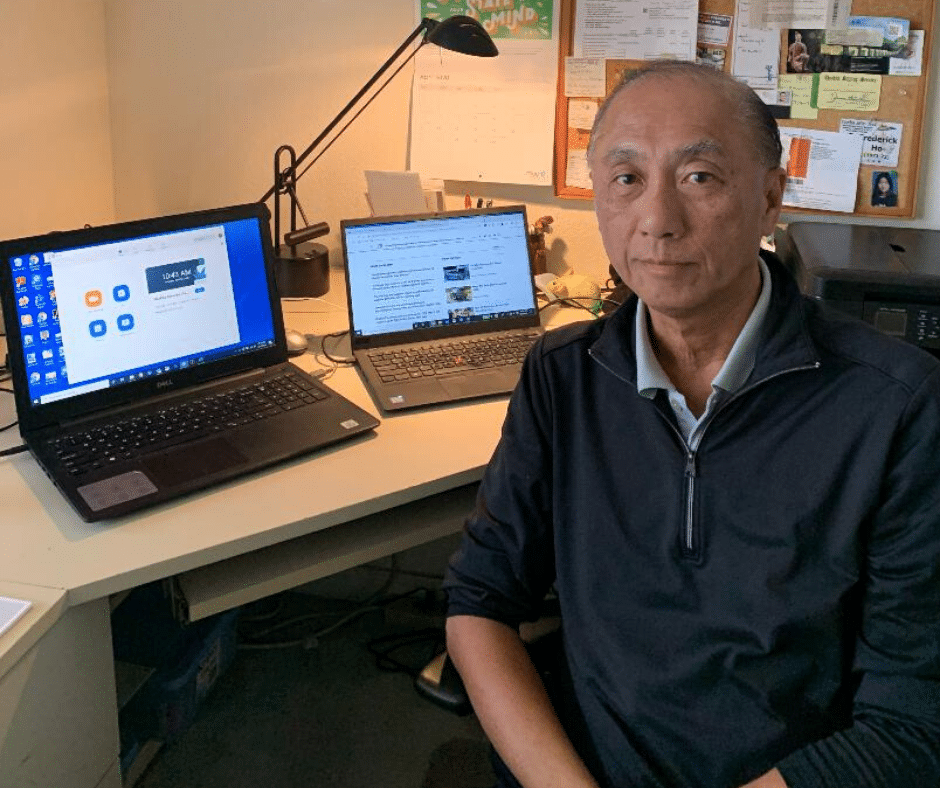 The pandemic has made life exponentially harder for the staff and residents at HomeFirst, which provides services and housing to the homeless and those at risk of homelessness across seven sites in Santa Clara County. Technology can make things a bit easier — if people get the equipment and support they need.
The pandemic has made life exponentially harder for the staff and residents at HomeFirst, which provides services and housing to the homeless and those at risk of homelessness across seven sites in Santa Clara County. Technology can make things a bit easier — if people get the equipment and support they need.
That’s Frederick Ho’s job right now. After 40 years in the computer industry, Ho became an Encore Fellow at HomeFirst, taking on the role of IT director just a few months before the coronavirus hit. Since then, it’s been a whirlwind, with new needs rising as the days pass.
When the majority of HomeFirst staff of 200+ started working from home, Ho had to quickly adapt. He ordered a bunch of Dell laptops and dealt with limited inventory and FedEx delays. “We’re expecting to get another batch this week,” he says. Ho also helped the staff learn to work remotely.
And Ho saw that the shelters’ residents needed technology, too. “The internet and WiFi at a family shelter in Sunnyvale were originally established to support the staff,” he says, “but I’ve been working with a vendor to expand the bandwidth so it’s now more available to the families.”
What about the kids? “I also ordered a dozen Chromebooks,” Ho says, “so school-aged children at the shelter can do homework assignments remotely.” (Fortunately, the costs of technology were covered by COVID-related financial donations.)
There’s more. Ho has been involved in implementing a security system and providing Wifi for the residents of the Maybury Bridge Housing Community, which California Governor Gavin Newsom visited this past February. He’s now working on a similar system for a second transitional housing site.
“Fred’s been great,” says Art Stein, HomeFirst’s CFO. “He’s just totally jumped in and been willing to provide IT support in all the ways we‘ve needed it – from getting our staff and shelters connected to making sure we have the right IT infrastructure at the new facilities we’re working to open. It’s been wonderful.”
Shelters don’t close on the weekends — they have to keep going, even during a pandemic. “You can think of the staff and volunteers working with the homeless as frontline workers,” Ho says.
Of course, Ho is taking precautions to stay safe himself. “There have been times where I’m taking delivery of laptops, doing configurations and getting them to the different sites, and that work has some built-in dangers in itself,” he says.
During his regular career, Ho never had the time to do nonprofit or charitable work. “This is really the first time that I’ve done this type of thing, and it’s been rewarding.”
Encore Fellowships match skilled, seasoned professionals with social sector organizations in high-impact, paid engagements lasting from six months to one year. Since 2009, approximately 2,000 individuals have provided over two million hours of service to nonprofits.